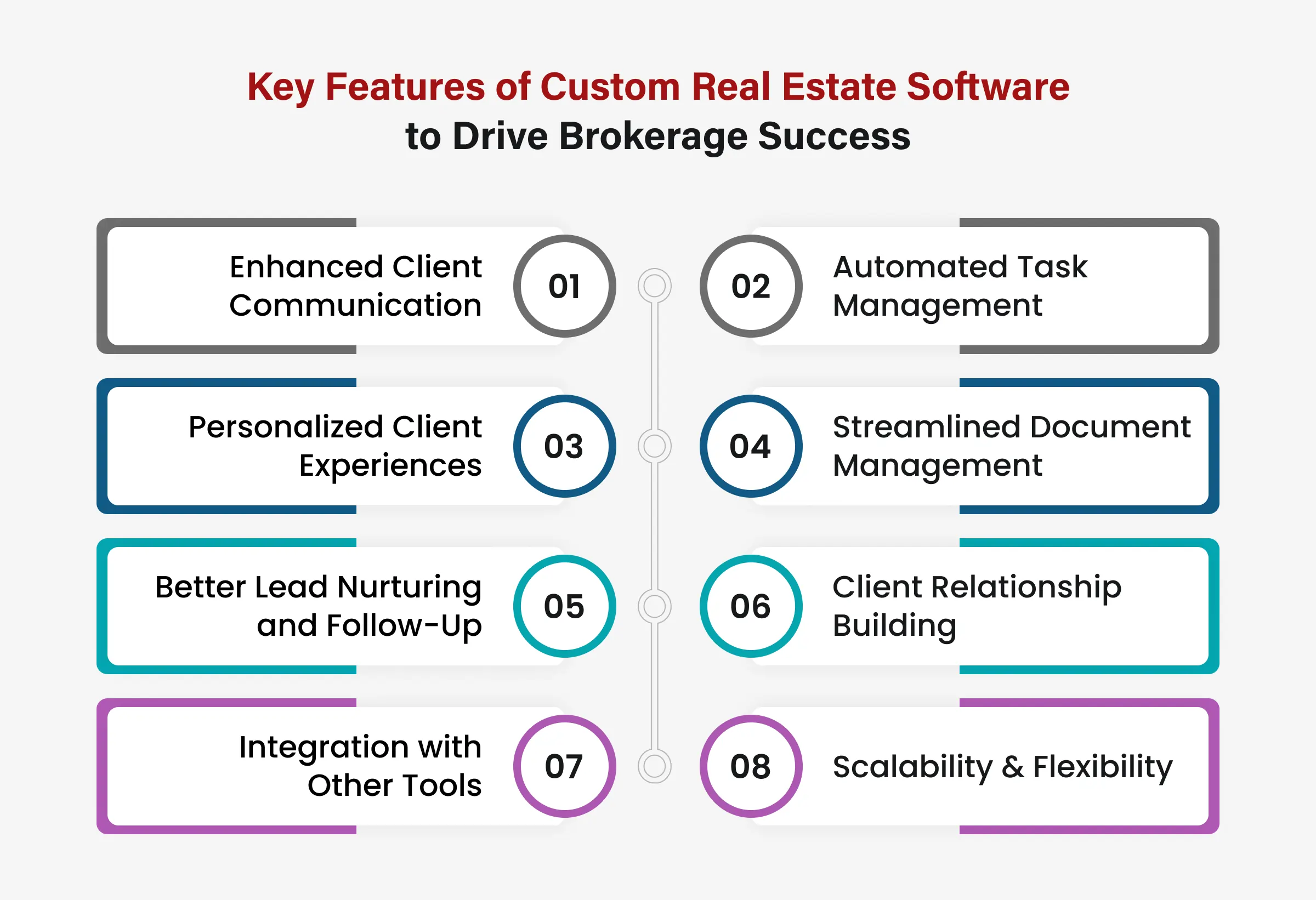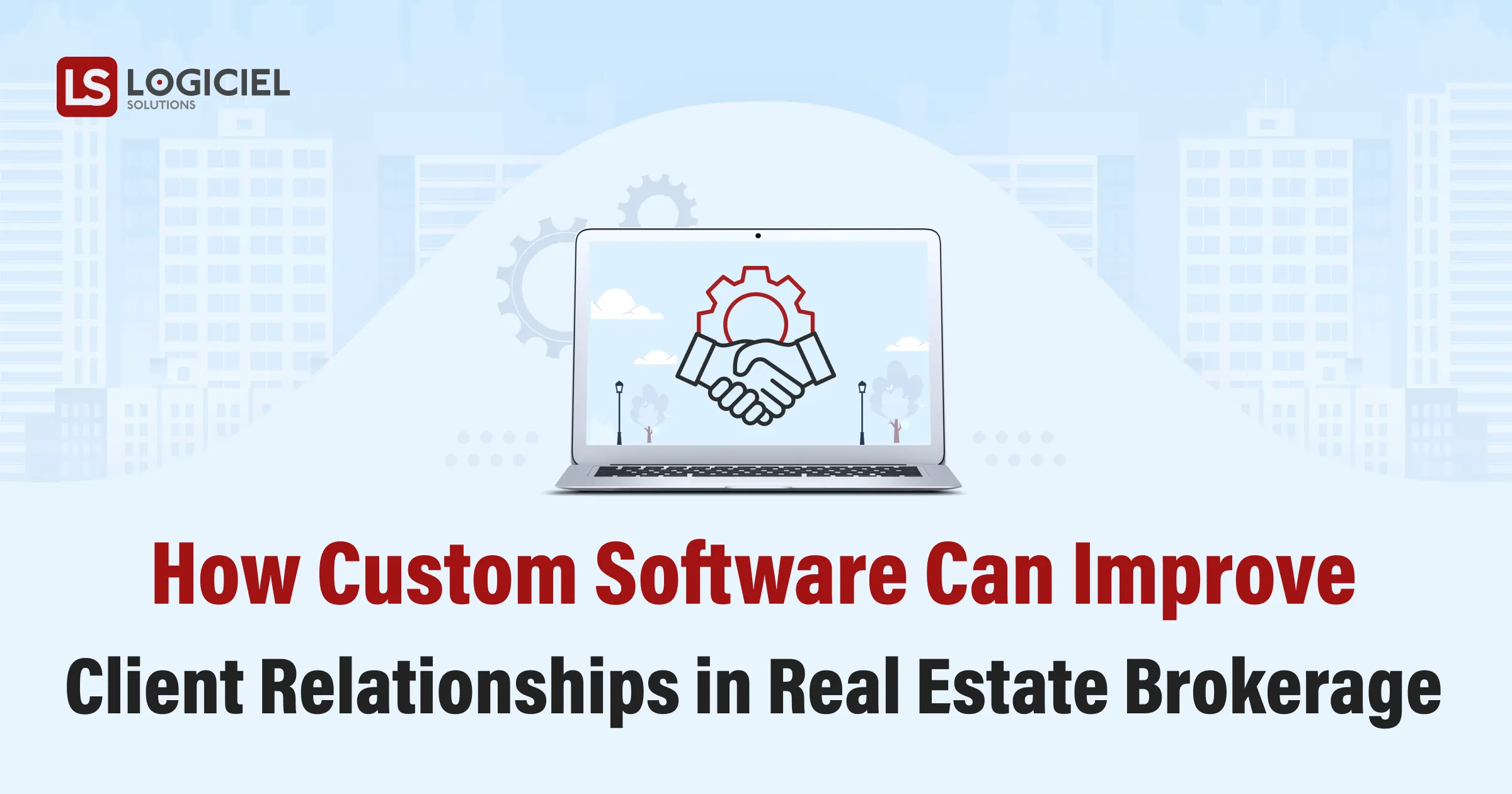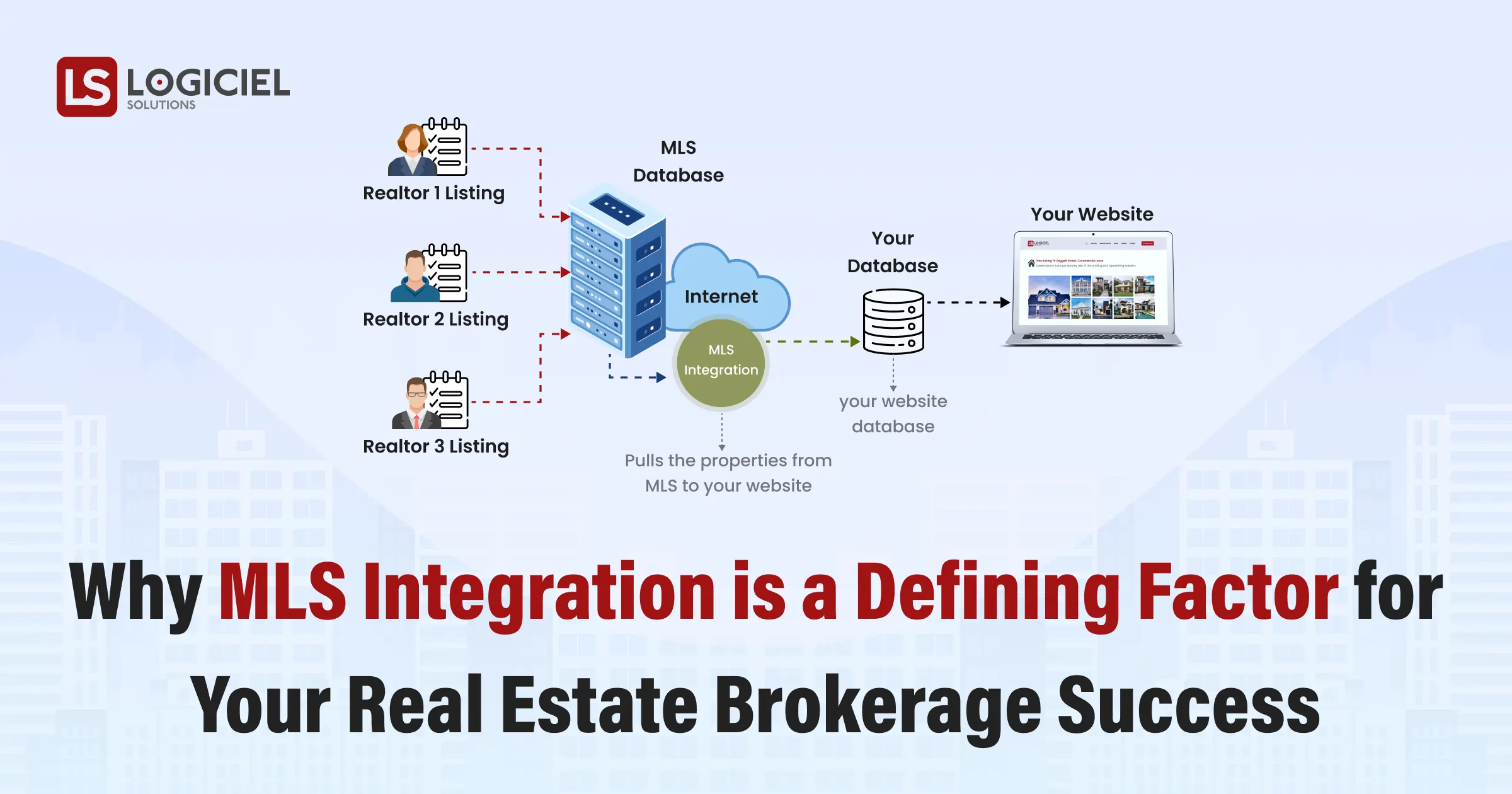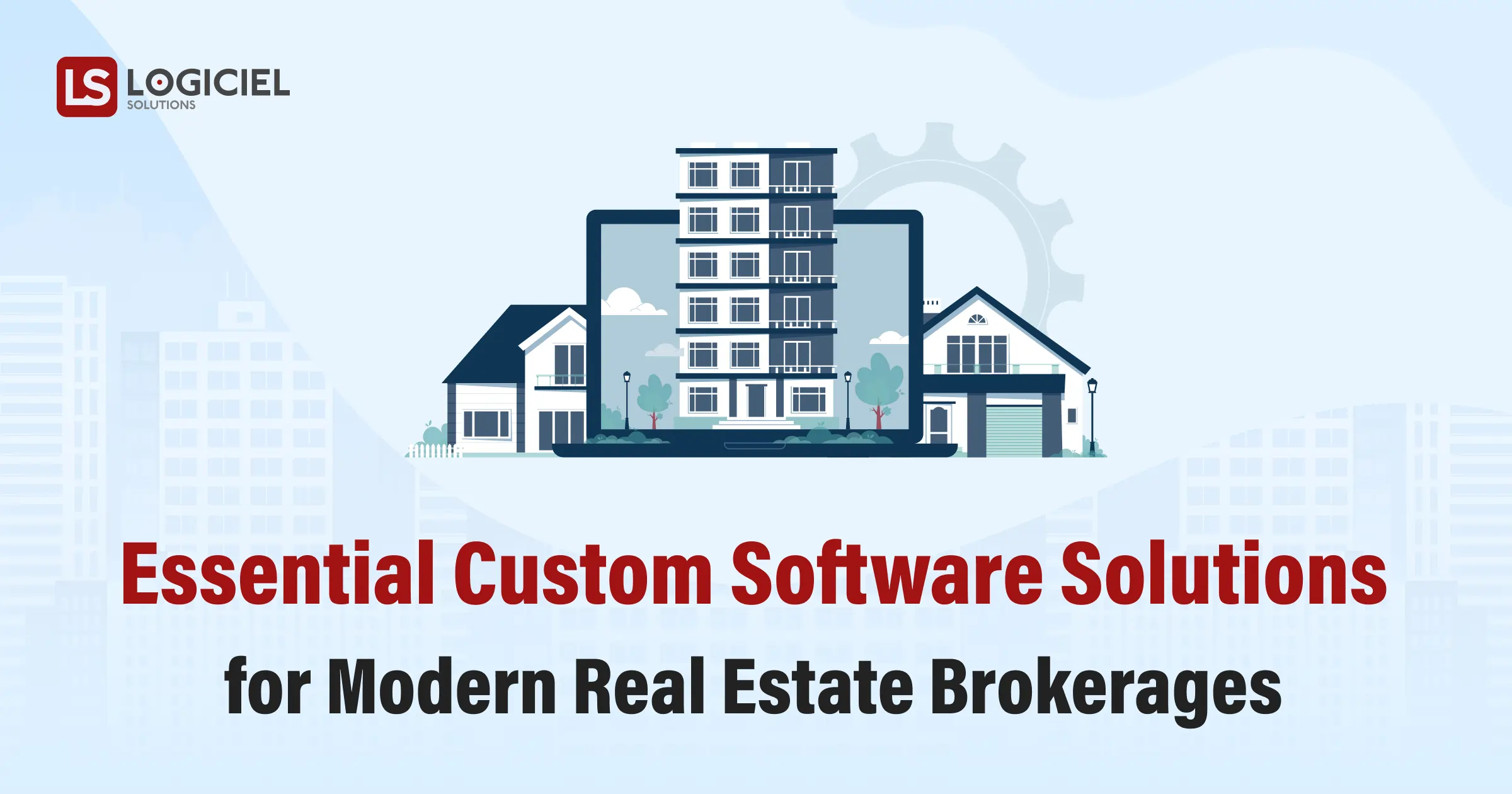Balancing client relationships with increasingly complex real estate transactions, rapidly shifting market dynamics, and growing operational demands is essential in today’s fast-moving and highly competitive real estate landscape.
One key solution to managing these challenges is Custom Real Estate Software Development. Unlike off-the-shelf platforms, custom software is specifically crafted to address the distinct workflows, client expectations, and strategic goals of a real estate business.
In this article, we will explore how custom software can enhance client relationships in real estate brokerage, streamline operations, and contribute to long-term success.

1. Enhanced Client Communication and Responsiveness
Effective communication is the cornerstone of any strong client relationship. Custom software enables real estate brokerages to centralize all communication channels, whether through email, phone, text messages, or social media. By integrating these channels into one system, agents can track conversations with clients in real-time, ensuring that no communication is missed.
This centralized communication not only allows agents to respond more quickly but also provides a complete history of interactions, allowing agents to offer personalized responses based on prior conversations. Clients will appreciate the swift, relevant communication, and brokers will benefit from reduced miscommunication and increased transparency.
Example: Custom Real Estate Software Development can provide you with a personalized CRM (Customer Relationship Management) tool that sends automated follow-up emails after showings or meetings. This ensures clients feel valued and informed throughout their home-buying journey. The system also notifies agents when it’s time to follow up, preventing any leads from slipping through the cracks.
2. Automated Task Management for Better Client Service
Real estate agents juggle numerous tasks daily, from property viewings and client meetings to paperwork and negotiations. Managing these tasks manually can be both time-consuming and prone to errors. Real Estate Software Development or custom software simplifies task management by automating routine processes, allowing agents to focus more on delivering quality service to their clients.
With a task automation system, agents receive automatic reminders for important tasks, such as contacting clients for feedback, scheduling property visits, or sending contracts for signature. This organized approach prevents any delays, ensuring clients experience a seamless, stress-free process.
Example: A custom platform can automatically assign tasks to agents based on priority and client urgency. For example, if a client shows interest in a specific property, the system can immediately notify the agent to schedule a viewing, ensuring that the client feels attended to.
3. Personalized Client Experiences through Data-Driven Insights
Clients expect personalized experiences in today’s digital age. Custom software leverages data analytics to help real estate brokerages better understand client preferences, behaviors, and history. With these insights, agents can offer more personalized property recommendations, pricing strategies, and service options tailored to each client’s needs.
By tracking a client’s online searches, favorite properties, and past interactions, agents can anticipate their needs and proactively address them. Clients feel understood and valued when brokerages use data to offer solutions that align with their preferences.
Example: If a client frequently searches for properties in a specific neighborhood or with particular features (like a pool or large backyard), the custom software can automatically generate recommendations based on those preferences. The client will appreciate the relevance of the recommendations, improving their satisfaction and likelihood of closing a deal. Custom Real Estate Software Development is critical for every brokerage firm in modern times.
4. Streamlined Document Management and Client Collaboration
Real estate transactions involve a significant amount of paperwork, including contracts, disclosures, inspection reports, and mortgage agreements. Traditionally, managing these documents has been a manual, time-consuming process prone to errors and delays. Real Estate Property Management Software acts as a centralized platform for managing all documents in one secure location, accessible to both agents and clients.
With features like electronic signatures, real-time updates, and cloud-based document storage, custom software eliminates the need for back-and-forth emails or physical paperwork. This enhances the client’s experience by reducing friction and speeding up the transaction process, while also providing agents with more efficient workflows.
Example: Clients can log into a secure portal to review and sign contracts digitally, track the status of their transaction, and even communicate directly with their agent. This reduces the need for face-to-face meetings and allows clients to complete tasks from the comfort of their homes.
5. Better Lead Nurturing and Follow-Up
Real estate brokers often deal with potential clients who are in various stages of the buying or selling process. Some may be ready to move forward immediately, while others might be months away from making a decision. A generic CRM might struggle to differentiate these varying needs, leading to lost opportunities.
Custom Real Estate Software enables agents to categorize and prioritize leads based on their stage in the sales funnel, ensuring that no one is neglected. With automated follow-up sequences, custom platforms can send timely, relevant content to nurture leads, keeping them engaged even if they’re not ready to act immediately.
Example: If a lead visits a property multiple times but hasn’t yet expressed serious interest, the custom software can trigger a nurturing campaign that sends the lead educational content about market trends, financing options, or neighborhood information to build trust over time. This keeps the client engaged until they are ready to make a decision.
6. Client Feedback and Relationship Building
Understanding client satisfaction is crucial for long-term success in real estate. Custom software allows brokerages to gather and analyze client feedback more efficiently, identifying areas for improvement and growth. Whether through automated surveys, follow-up emails, or integrated feedback forms, brokerages can collect real-time data on client experiences.
Additionally, custom software can track referral patterns, helping brokers identify satisfied clients who are likely to refer friends or family. By nurturing these relationships through personalized follow-ups, real estate brokerages can build a stronger referral network and foster client loyalty.
Example: After closing a deal, an automated feedback request can be sent to the client, asking about their experience with the process and the agent. This feedback can then be analyzed to continuously improve client service and identify areas of excellence.
7. Integration with Other Tools and Platforms
Custom software offers seamless integration with other platforms like MLS (Multiple Listing Service), marketing automation tools, or financial software. This creates a cohesive system that allows real estate brokers to manage all aspects of their business from one platform, improving efficiency and providing clients with a consistent experience.
By integrating marketing tools, agents can track which properties a client has interacted with and tailor future marketing efforts accordingly. Similarly, financial software integration helps provide clients with accurate, up-to-date information on mortgage options or closing costs.
Example: If a client is using a mortgage calculator on your website, the data can automatically sync with your CRM, allowing agents to offer tailored financing options or connect clients with mortgage professionals who can assist them.
8. Scalability and Flexibility for Growing Brokerages
As real estate brokerages grow, their needs change. Real Estate Custom Software is designed to scale with the business, allowing brokerages to add new features, users, and integrations as they expand. This scalability ensures that brokerages can continue providing excellent service to clients without outgrowing their software platform.
The flexibility of custom software also allows for real-time updates and modifications based on evolving market trends, ensuring brokerages remain competitive in a rapidly changing industry.




